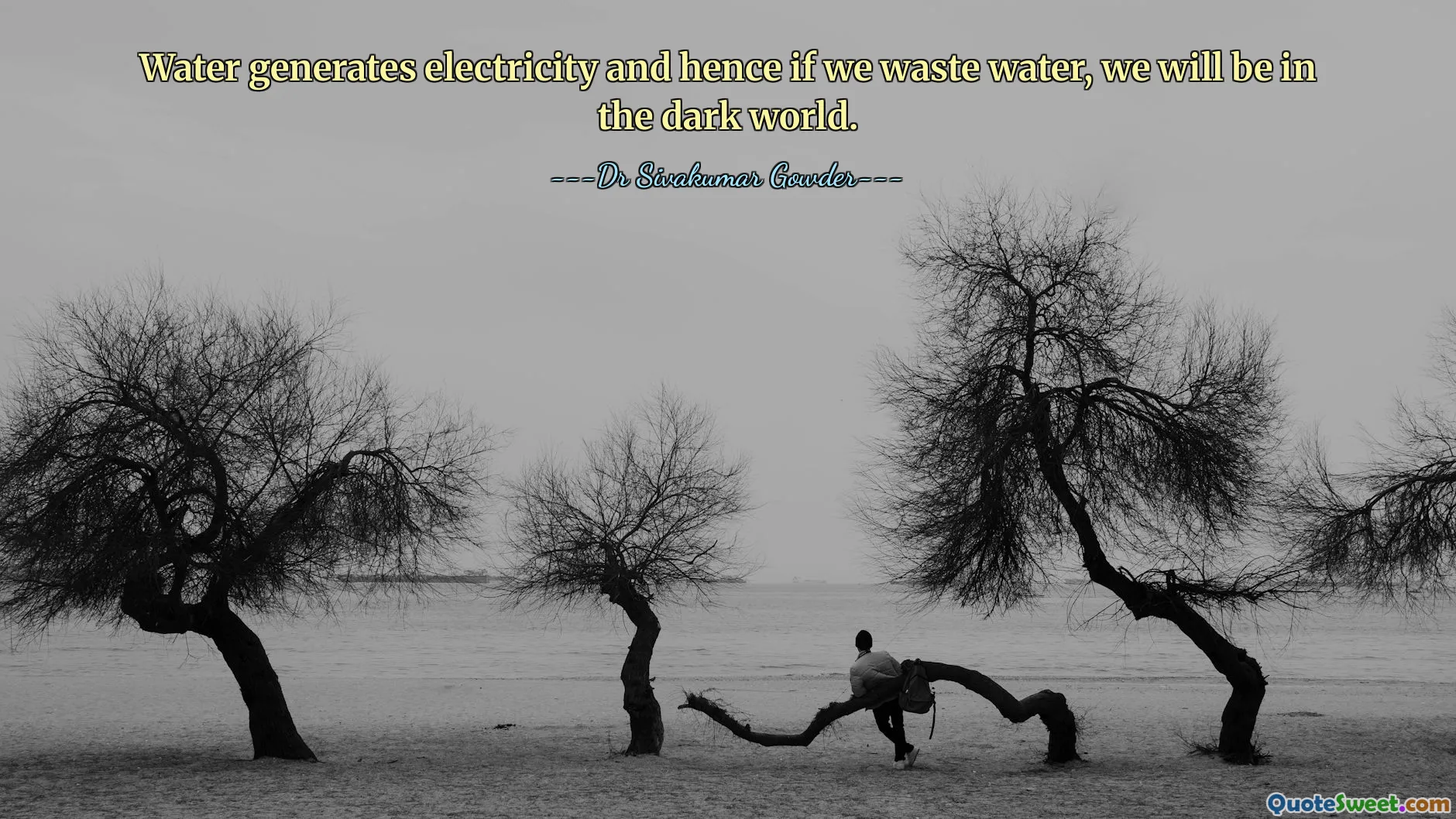
Water generates electricity and hence if we waste water, we will be in the dark world.
Water is undeniably one of the most vital resources we have on this planet. It powers hydroelectric plants that generate significant portions of our electricity, providing clean and renewable energy to millions around the world. Wasting water doesn't just mean losing a valuable resource; it directly impacts our energy production and overall sustainability. When we misuse or over-utilize water — whether through excessive consumption, pollution, or inefficient use — we jeopardize our ability to harness this essential element for electricity generation and other vital needs.
The interconnectedness of water and electricity highlights the importance of responsible resource management. In many regions, water scarcity leads to blackouts or energy shortages because hydroelectric facilities cannot operate optimally. Such situations underscore an often-overlooked consequence: water mismanagement can plunge entire communities into 'darkness,' symbolically and literally.
Furthermore, water conservation positively affects other aspects of our environment and economy. Efficient use reduces strain on natural ecosystems, minimizes pollution, and helps sustain agricultural productivity and daily living. Education and policy interventions play crucial roles in fostering a culture of conservation, emphasizing that our actions today significantly influence the quality of life tomorrow.
Reflecting on this quote reminds us to value and protect water, not just as a resource to quench thirst but as a cornerstone of our energy infrastructure and sustainable future. Adopting habits like reducing wastage, fixing leaks, and promoting renewable energy sources are steps toward ensuring that we do not find ourselves in a 'dark world' owing to our negligence. Ultimately, responsible water management is vital for progress and prosperity, aligning technological advancements with ecological preservation.








